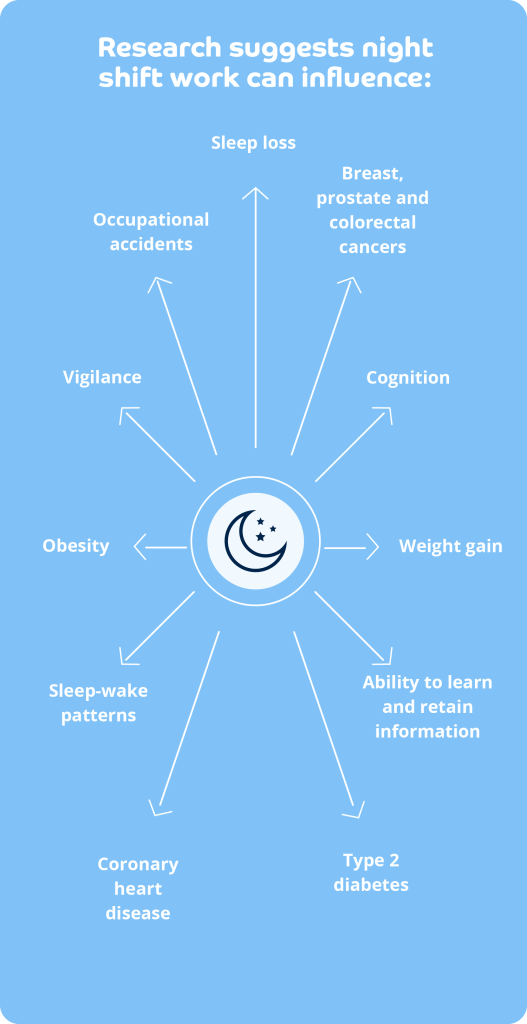Introduction
Adjusting to overnight work can be a challenging transition for many individuals. Whether you are starting a new job that requires you to work night shifts or you are simply shifting your schedule to accommodate a different work time, there are several strategies that can help make the adjustment smoother. In this article, we will explore some tips and tricks for adjusting to overnight work and maintaining a healthy work-life balance.
Creating a Consistent Sleep Schedule
One of the most important factors in adjusting to overnight work is establishing a consistent sleep schedule. Your body’s internal clock, also known as your circadian rhythm, is naturally programmed to sleep at night and be awake during the day. When you disrupt this natural rhythm by working overnight, it can take time for your body to adjust. To help facilitate this adjustment, try to go to bed and wake up at the same time each day, even on your days off. This consistency will help regulate your body’s internal clock and improve the quality of your sleep.

In addition to maintaining a consistent sleep schedule, it is also important to create a relaxing bedtime routine to help signal to your body that it is time to wind down and prepare for sleep. This could include activities such as taking a warm bath, reading a book, or practicing meditation or deep breathing exercises. Avoiding stimulating activities such as watching TV or using electronic devices before bed can also help improve the quality of your sleep.
Lastly, make sure your sleep environment is conducive to restful sleep. Keep your bedroom dark, cool, and quiet, and invest in a comfortable mattress and bedding to ensure a good night’s sleep.
Adjusting Your Diet and Exercise Routine

Another important aspect of adjusting to overnight work is making sure you are fueling your body with the proper nutrients and staying physically active. Working overnight can disrupt your eating schedule, as you may find yourself eating at odd hours or relying on convenience foods. To combat this, try to plan and prepare healthy meals and snacks ahead of time so you have nutritious options readily available when hunger strikes.
In addition to watching your diet, it is also important to make time for regular exercise. Physical activity can help boost your energy levels, improve your mood, and promote better sleep. Even if you are working odd hours, try to schedule time for exercise either before or after your shift. This could include activities such as walking, jogging, yoga, or strength training. Finding a workout routine that works for you and sticking to it can help improve your overall well-being and make adjusting to overnight work easier.

Lastly, make sure you are staying hydrated throughout the day and avoiding excessive caffeine or alcohol consumption, as these can disrupt your sleep patterns and make adjusting to overnight work even more challenging.
Managing Your Workload and Stress Levels
One of the biggest challenges of adjusting to overnight work is managing your workload and stress levels. Working overnight can be physically and mentally demanding, and it is important to find ways to cope with the stress that comes with the job. One strategy for managing your workload is to prioritize your tasks and break them down into smaller, more manageable chunks. This can help prevent feeling overwhelmed and ensure you are able to complete your work efficiently.
In addition to managing your workload, it is important to take breaks throughout your shift to rest and recharge. This could include taking a short walk, practicing deep breathing exercises, or simply stepping away from your work station for a few minutes. Finding ways to relax and de-stress during your shift can help improve your productivity and overall job satisfaction.
Lastly, make sure you are communicating with your coworkers and supervisors about any concerns or challenges you may be facing. Building a support system at work can help you navigate the transition to overnight work and ensure you have the resources you need to succeed in your new role.
Creating a Supportive Home Environment
Adjusting to overnight work can also impact your home life and relationships. It is important to communicate with your family and friends about your new schedule and how it may affect your availability. Setting boundaries and establishing clear communication can help prevent misunderstandings and ensure that your loved ones understand and support your decision to work overnight.
In addition to communicating with your family and friends, it is also important to prioritize self-care and make time for activities that bring you joy and relaxation. This could include spending time with loved ones, pursuing hobbies or interests, or simply taking time for yourself to rest and recharge. Making self-care a priority can help prevent burnout and improve your overall well-being as you adjust to overnight work.
Lastly, make sure you are setting aside time for rest and relaxation, even on your days off. This could include scheduling regular downtime to unwind and recharge, as well as making time for activities that help you relax and de-stress. Finding a balance between work and personal life is essential for maintaining your mental and emotional well-being as you adjust to overnight work.
Seeking Professional Help if Needed
Adjusting to overnight work can be a challenging process, and it is important to seek professional help if you are struggling to cope with the changes. If you find yourself experiencing persistent sleep disturbances, mood changes, or difficulty adjusting to your new schedule, consider reaching out to a healthcare provider or mental health professional for support. They can help provide you with resources and strategies to better manage your symptoms and adjust to overnight work more effectively.
In addition to seeking professional help, consider reaching out to a support group or online community for individuals who are also adjusting to overnight work. Connecting with others who are going through a similar experience can help you feel less alone and provide you with a sense of community and understanding. Sharing your experiences and learning from others can help you navigate the challenges of adjusting to overnight work and find ways to cope with the changes more effectively.
Conclusion
Adjusting to overnight work can be a challenging transition, but with the right strategies and support, it is possible to make the adjustment smoother and maintain a healthy work-life balance. By creating a consistent sleep schedule, adjusting your diet and exercise routine, managing your workload and stress levels, creating a supportive home environment, and seeking professional help if needed, you can better cope with the changes that come with working overnight. Remember to prioritize self-care, communicate openly with your loved ones, and take time for rest and relaxation to ensure that you are able to thrive in your new role. With time and patience, you can successfully adjust to overnight work and navigate the challenges that come with it.
Leave a Reply